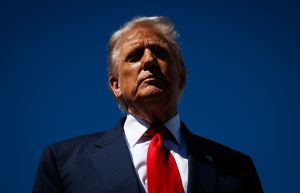On Friday, a high-ranking North Atlantic Treaty Organisation (NATO) representative called on Beijing to increase its transparency regarding its rapidly expanding nuclear arsenal. The official emphasized that, as a major global player, China had a duty to promote openness and accountability.
At a security conference in Singapore, Angus Lapsley, the NATO Assistant Secretary General for Defence Policy and Planning, stated that NATO is open to discussing the issue with China, as reported by Reuters. Lapsley believes that since China is a global power, it is responsible for being more transparent. He also remarked that the rate and size of the Chinese military expansion are quite impressive.
NATO Opens Its Communication Lines for China
According to Lapsley, NATO does not wish to intervene in the region but wants to communicate and engage with China.
Although the United States, France, and Britain are nuclear-armed members of NATO, they do not want to interfere with China's modernization and expansion of their arsenals. Lapsley also mentioned that although NATO is open to dialogue, it cannot replace the necessity of direct communication between the United States and China.
More (Undeclared) Nuclear Warheads?
The report from the Pentagon about China, published in November 2022, highlighted the fact that China had increased its expansion and currently possesses more than 400 nuclear warheads that are operational.
According to Lapsley, US officials have requested more communication with China. However, this number is still much lower than the number of nuclear warheads that the United States and Russia have in their arsenals.
The Pentagon also says that China is expected to have a stockpile of 1,500 nuclear warheads and advanced missiles by 2035, which is the year the Communist Party aims to fully modernize its military.
The People's Liberation Army officers in the audience expressed their concerns about the recent actions taken by the U.S. and its allies to provide nuclear-powered submarines to Australia and strengthen South Korea's defense, despite the absence of Chinese representatives on the panel.
China has been a nuclear power since the 1960s and has kept a small number of nuclear warheads and missiles for deterrence purposes, with a promise of not using them first. However, under President Xi Jinping's leadership in recent years, China's military modernization has led to a rapid growth in its nuclear arsenal.
Read also: NATO's New Asia Office Boosts Japanese Cooperation, but Membership Remains Out of Reach
The Risks
As China continues to increase its nuclear arsenal, it is likely that other countries in the region will also feel pressured to develop their own nuclear capabilities. This could lead to a dangerous arms race and further instability in East Asia's already tense geopolitical landscape.
Moreover, concerns have been raised about China's lack of transparency regarding its nuclear program. The country has not provided detailed information on the number or location of its warheads and missiles, which makes it difficult for other nations to assess potential threats.
The international community has called on China to engage in dialogue and work towards disarmament as part of global efforts towards reducing nuclear weapons worldwide. However, with tensions rising between major powers such as the U.S., Russia, and China, achieving this goal may prove challenging.
It remains uncertain how developments surrounding Chinese nuclear capabilities will play out over time but one thing is certain: everyone must remain vigilant regarding security issues involving critical infrastructure lest unintended consequences arise leading up to escalating conflict—or worse yet catastrophe
Related article: China Developing Nuclear Weapons Way Faster Than USA, Warns Strategic Command Chief
© 2026 HNGN, All rights reserved. Do not reproduce without permission.








